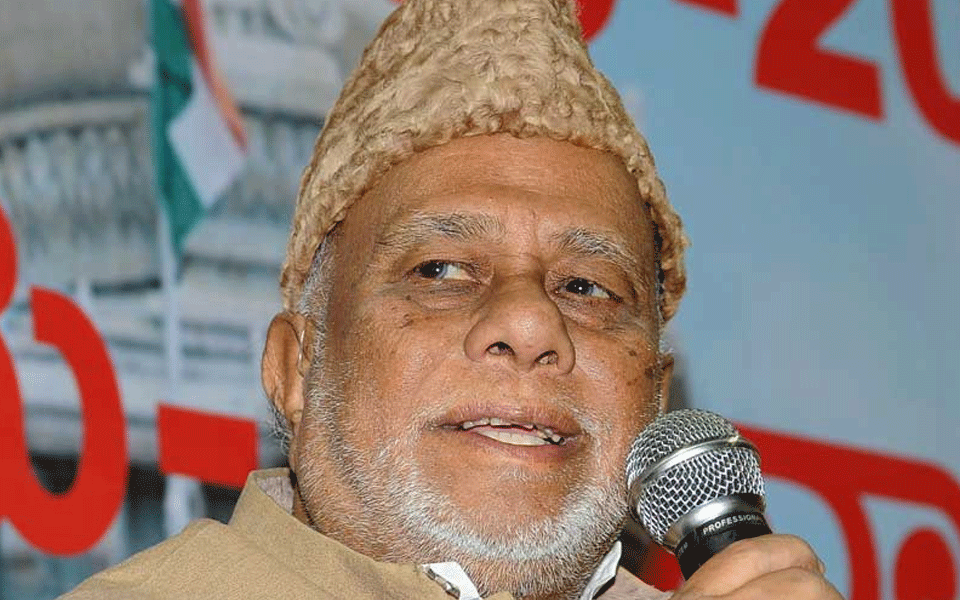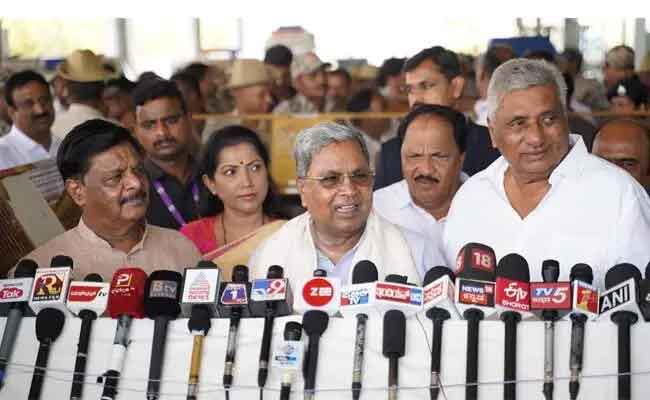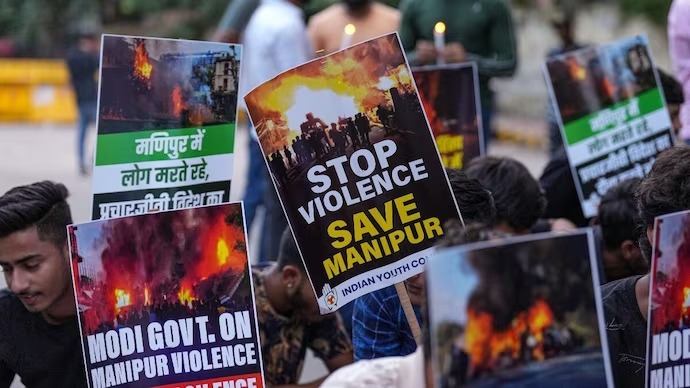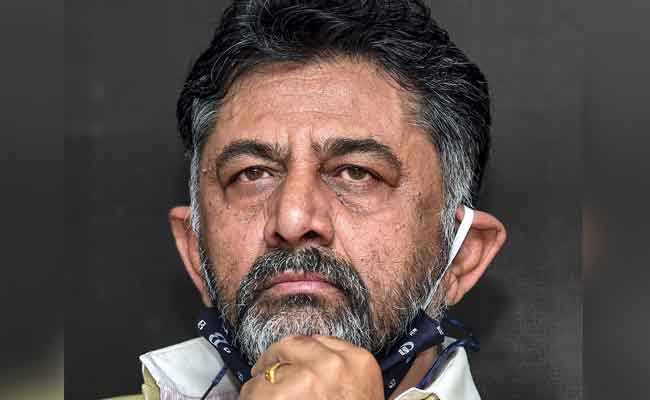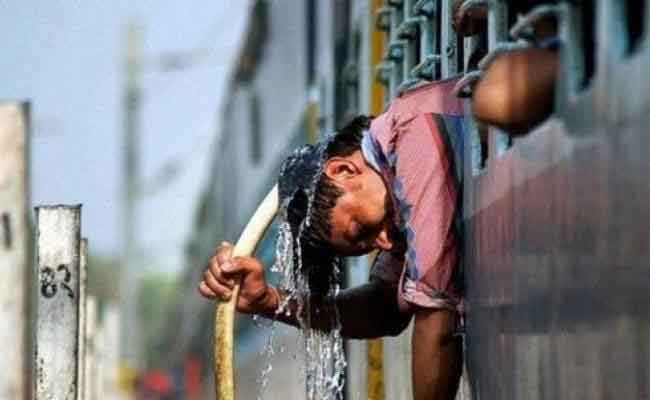Bengaluru, Nov 25: The State of Karnataka has lost one of the most senior politicians in the death of Mr. Challakere Kareem Jaffer Sharief who breathed his last in Bengaluru on November 25 afternoon after a brief illness.
The veteran Congressman, Jaffer Sharief was elected to the Lok Sabha for a record eight times between 1971 and 1999. But he will be more remembered as a Union Railway Minister for his signal contribution of imparting unigauge to the Indian Railways thereby making trains to run from Jammu to Kanniyakumari and Trivandrum to Dibrugarh in Assam. Prior to his advent to the Ministry, the Indian Railways had three different gauges—Broadguage, Metregauge, and Narrowgauge—which posed hassles in cross country travel of passengers and considerably delayed transport of goods.
Sharief is one among the three politicians I know who represented predominantly non-Muslim constituencies over and over again and were known for accomplishments that had nothing to do with Muslims alone. The other two were: 1-Kamaluddin Ahmed who was elected from Warangal LS constituency at least four times and rose to become a leader on the strength of his stint as a trade union leader. His constituency had only 7% Muslims. Second was Mr. Farook Maricar who was twice or thrice chief minister of Pondicherry (now Puducherry), was elected Lok Sabha MP (I remember twice) and was appointed Ambassador to Kingdom of Saudi Arabia. Puducherry too has only 7% Muslim population. Jaffer Sharief represented Bangalore North constituency seven times which has 25% religious minority population (19% Muslims + 6% Christians). Though he never raised Muslim issues in an emotive manner, maintained active contacts with minorities and counseled moderation.
Jaffer Sharief rose from the humble background in an agriculturist family in Challakere in Chitradurga district of Karnataka and did not have the opportunity to pursue education beyond the high school. He however gathered political training under astute Congress leader and two times State Chief Minister S. Nijalingappa.
As a member of his personal staff, Jaffer Sharief is said to have got the air about the machinations of the strong internal coterie within the Congress comprising Morarji Desai, Atulya Ghosh, Neelam Sanjeeva Reddy, K. Kamaraj and a few other members who were opposed to Prime Minister Indira Gandhi’s leftward shift (or drift) in policies to reclaim the popular base of the party way back at the end of 1960s. Mrs. Gandhi’s nationalization of 14 major banks and supporting the candidature of V. V. Giri for the President of India’s office (against the Congress’ official candidate Neelam Sanjeeva Reddy) had angered the coterie and they were about to throw her out of the party. In fact, Morarji Desai had resigned as the Union Finance Minister after Mrs. Gandhi sprang a surprise of nationalization of the 14 major banks. Sharief is said to have conveyed the new of the planned move of the senior leaders to Ms. Gandhi which resulted in her preemptive strike against the coterie and splitting the party carrying a major chunk of the MPs with her. This backstage role of Mr. Sharief won him the lifelong debt of the Nehru-Gandhi clan and saw him being nominated on the Congress ticket first from Kanakapura Lok Sabha Constituency in 1971 and later from Bangalore North constituency for seven times in 1977, 1980, 1984, 1989, 1991, 1998 and 1999. The only time he did not represent this Constituency during these years was between 1996 and 1998 when he was not fielded by the Indian National Congress in 1996 elections. Sharief had resigned from the Ministry of Mr. P. V. Narasimha Rao complaining of INC’s wavering stand and compromise on the issue of secularism. 2009 was the last election he fought from Bangalore North in which he was defeated by BJP’s D. B. Chandregowda.
Sharief was though a Minister of State for Railways between 1980 to 1984, he is more recognized as the Union Railway Minister between 1991 and 1995 when he took up with crusading zeal the implementation of single gauge for the Railways all across the nation. The Railways saw gauge conversion of nearly 6,000 kilometres, of which around 1,000 kms were in Karnataka alone. It was during this period that Bengaluru emerged prominently on the Railway map of India with direct trains crisscrossing the city. He was also instrumental in bringing the Wheel Axle Plant for the Indian Railways to the city (in Yelahanka) and setting up Railway Container Terminal at Whitefield and creation of a new Railway zone i.e., South Western Railway with Headquarters in Hubli and establishment of a third railway terminal at Yeshwanthapur in Bengaluru. These facilities greatly enhanced the access to Bengaluru which was enjoying a booming economy what with MNCs lining up for setting their India headquarters here.
Sharief also served as a Minister of State for Irrigation (1984-88) and Minister of State for Coal (1988-89). Besides he served on a number of Standing Committees of the Lok Sabha during his 34-year Parliamentary career.
Married to Amiena Bi, he had two sons and two daughters. However his sons predeceased him. Younger son Khader Nawaz Sharief died in 1999 while the second son Abdul Karim died in 2009, even while he was fighting Lok Sabha elections. His wife died in 2008. He established an Engineering College (Khader Nawaz Sharief Institute of Technology) in Hegde Nagar, Bengaluru in memory of his late son. One of his sons married a daughter of Mufti Sayeed, later PDP leader from Jammu & Kashmir. (I am not certain which of the sons.)
Though Sharief was never into State politics, he was one among the contenders for the chief ministership after 1999 Assembly election when the Congress stormed back to power in the State. However the High Command anointed Mr. S. M. Krishna as the chief minister. This was the closest he came to grabbing the high position in the State. For some time after losing 2009 elections, Sharief got close to Mr. H. D. Deve Gowda with whom he had shared a great personal bonhomie. He also appeared with BSP leader Mayawati on one occasion leading to speculation that he was on the verge of terminating his ties with the grand old Congress party. Yet the speculated denouement never came.
The CBI instituted a case against Sharief in 1995 (after his resignation from the Narasimha Rao cabinet) alleging him to have utilized services of four Ministry officials while he was under medical treatment in London. The CBI closed the decade long case in 2006 while the United Progressive Alliance was at the saddle of power in Delhi.
Jaffer Sharief was into organising a function to release the Urdu translation of Maulana Azad’s English book “India Wins Freedom” next week in a grand function in the Bangalore Palace. Former Vice President of India Mr. Hamid Ansari had been invited for the occasion.
Sharief was an extremely moderate and secular leader who had adroitly managed power equations without pandering to any communal politics. He was a leader with mass appeal and never exploited religious sentiments for partisan ends. In his death, Karnataka has lost a visionary politician and a worthy leader.
Let the Truth be known. If you read VB and like VB, please be a VB Supporter and Help us deliver the Truth to one and all.
Bidar: Chief Minister Siddaramaiah has expressed strong condemnation for the tragic murder of Neha Hiremath from Hubli and has assured speedy action against the accused through an expedited CID investigation.
Speaking to the media in Bidar today, the Chief Minister addressed the BJP's call for a CBI investigation, stating, "Did the BJP refer any cases to the CBI during their tenure? I have done so while in power. What moral authority do they have to demand it now? This should not be politicized." He further said that the accused has been already apprehended and that the CID is actively conducting investigations, with a charge sheet to be prepared soon.
Stern approach to justice, no political exploitation
CM Siddaramaiah urged other parties not to politicise Neha's murder, stressing the government's unwavering commitment to ensuring severe punishment for the guilty parties. "Neha's murder was an injustice, and we unequivocally condemn it. It should not be exploited for political gains," he asserted.
Modi's unfulfilled promises
Responding to criticism from Prime Minister Modi regarding the Congress manifesto's wealth redistribution plans, Siddaramaiah questioned Modi's track record of fulfilling promises, such as the infamous pledge of depositing 15 lakh rupees into each citizen's account and creating 2 crore jobs. He challenged whether Modi has effectively addressed the issue of rising essential commodity prices.
Continuation of muslim community reservation
Addressing Modi's remarks on Congress's proposed redistribution of reservation quotas to include the Muslim community, Siddaramaiah clarified that the 4% reservation for Muslims has been in place since 1994, based on the Chinnappa Reddy Commission's recommendation. He highlighted that despite challenges in the past, this reservation continues to be upheld, reaffirming the government's commitment to social justice.

